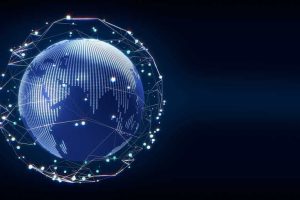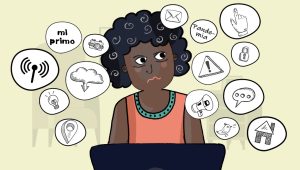On a cold, February morning in Detroit, 32-year-old Porcha Woodruff was busy preparing her two children for school. When a knock at the door interrupted their routine. Six Detroit police officers stood outside, presenting an arrest warrant for robbery and carjacking.
Woodruff, who was eight months pregnant and had experienced several complications during her pregnancy, found herself in a dire situation. She had been identified as a suspect in a January robbery and carjacking, pinpointed by the Detroit Police Department’s facial recognition technology.
Woodruff’s case highlights a growing concern: the unchecked use of facial recognition by police and governments. Police forces and governments worldwide are rapidly embracing facial recognition, experimenting with various software and often improvising the rules. The ethical and privacy concerns of this technology are immense, particularly given its reliance on data frequently obtained without consent or knowledge.
Now, consider the darker corners of this reality. Picture a world where your most personal data, your biometric blueprint, is stolen, not just lost in a sea of digital theft but actively used to refine tools of surveillance. These breaches aren’t mere accidents; they’re invasions, stripping away the veneer of privacy to reveal a world where your face can be the key to a system you never wished to be part of. This isn’t just about technology outpacing ethics, it’s a deliberate sidelining of human rights in the relentless march toward progress.
This narrative isn’t just hypothetical, it’s the reality of the world we navigate daily. As we tread through this digital landscape, we must ask ourselves: Is this the future we want to build? A future where our identities are commodities, traded and exploited under the guise of security? The time to confront these questions is now, before the reflection we see in the mirror of the digital world becomes unrecognisable, a mere echo of who we once believed ourselves to be.

Facial recognition systems learn from big datasets, but the origin of this data raises ethical concerns. The internet, a digital mirror of our world, has become a gold mine for data scrapers who harvest images to train algorithms. This scraping was done mostly between 2010-2014, when social networks were on the come up, and were not yet protecting the pictures posted by their users. In this period scrapers downloaded billions of photos from these platforms. This intrusion breaches the sanctity of personal privacy, turning public spaces into arenas of unconsented data extraction.
Moreover, the shadowy acquisition of data through breaches compounds the issue. Leaked or stolen databases, rich with biometric data, are used to improve facial recognition systems, exposing the questioning morality of a technology that thrives on unauthorised personal data. This unrestrained drive of technological superiority, which frequently ignores moral issues, presents a sad image of the industry’s disregard for personal privacy.
This lack of transparency around data usage further alienates the public. The hundreds of pages of terms and conditions disguise the reality that our digital footprints, once uploaded, escape our control. This lack of transparency crumbles trust, leaving individuals vulnerable to exploitation by the very tools designed to ensure their security.
Through the often-veiled use of facial recognition technology by the government, the threat of surveillance becomes increasingly widespread. The invasion of civil freedoms is happening all across the world, from China’s constant surveillance to the controversial application of technology by Western law enforcement. A striking example of how technology has the power to control rather than free can be witnessed in China, where the integration of face recognition technology with the social credit system paints a picture of a future in which individual rights are subject to restrictions set by the government.
In democratic countries, the use of facial recognition software by police forces, sparks heated debates about privacy and the risk of racial prejudice. The occurrence of false arrests due to misidentifications highlights the imperfections of the technology, contradicting the often-presumed infallibility of these systems. The absence of clear regulations and public agreement on these implementations signals an alarming move towards a surveillance-oriented society, characterised by limited oversight and weakened responsibility.

The inability of the technology to reliably identify people of colour draws attention to a structural flaw that runs the risk of promoting racial biases under the illusion of objective technology. These biases raise concerns about the role that technology plays in spreading discrimination because they are not just technical errors but rather reflect larger cultural injustices that are incorporated into algorithms.
These biases have real-world effects, such as broken lives, false arrests, and decreasing public confidence in law enforcement. The technology’s tendency towards inaccuracy raises concerns about its dependability and the fairness of its use in crucial fields like law enforcement, especially when it comes to minority groups.
China and other nations represent the extreme end of surveillance, where technology allows for nearly complete control over people, removing all signs of freedom and privacy. The widespread use of tracking within these kinds of regimes exposes the frightening potential of facial recognition technology to turn from a security tool into a tool of control, as the state’s eyes penetrate all the most personal spheres of human existence.
This continual observation creates a culture of compliance, in which action is influenced not by personal moral compass but by the fear of punitive consequences. People’s ability to express themselves freely and their right to privacy are severely limited in a society where everything they do is tracked, evaluated, and scored.

The debate surrounding facial recognition technology serves as a metaphor for a larger conversation about the use of technology in society. It forces us to think carefully about how to strike a balance between ethics, security, privacy and innovation. There is an urgent need for an open, moral framework guiding the use of facial recognition technology as it becomes more and more integrated into daily life. This entails a thorough examination of the training data’s sources, the installation of strong oversight procedures, and a dedication to resolving the biases present in the technology.
In terms of regulating the use of facial recognition software, the European Union has made significant progress. in the new AI-act, face recognition technology cannot be used in any live video and can only be used by law enforcement in the most serious situations, such as rape or murder. These are significant steps in the correct direction.
We advocate for all countries to cease using facial recognition software until a universal precedent is established. The consequences of deploying such technology are significant and should not be taken lightly. A robust framework of rules and regulations is essential before considering its broader implementation.
The need for action is clear: facial recognition technology must be developed and implemented with strict monitoring. This guarantees that it is consistent with our common values and objectives, which are to create a future in which technology serves as a tool for human benefit rather than dominating over human autonomy.


